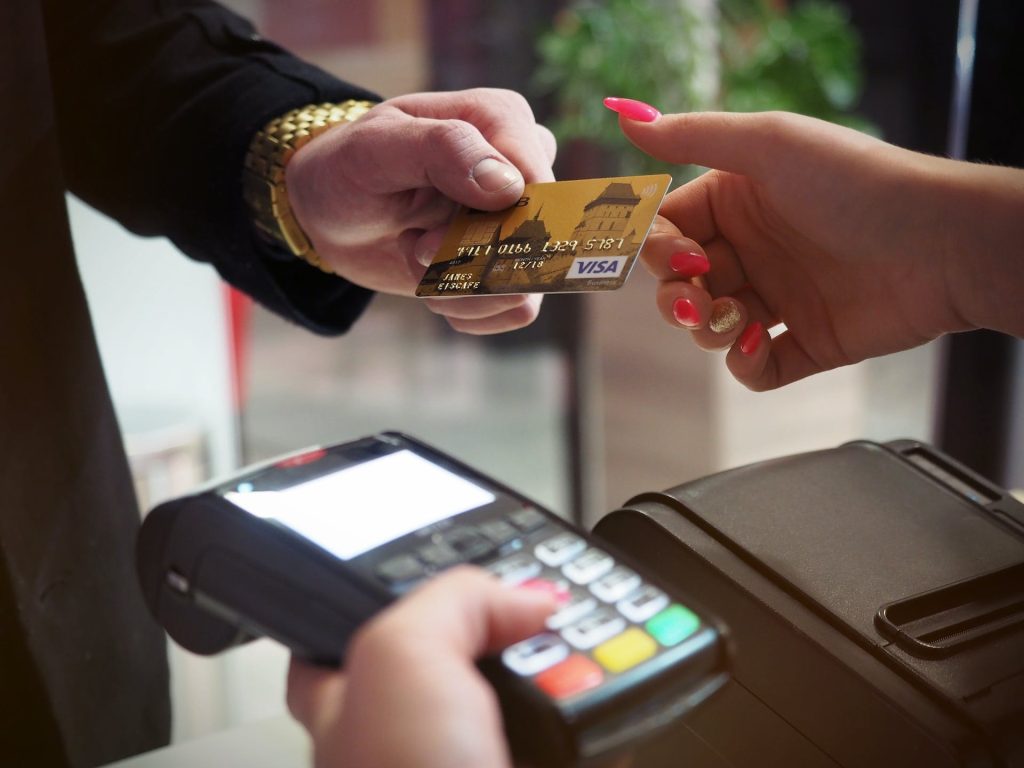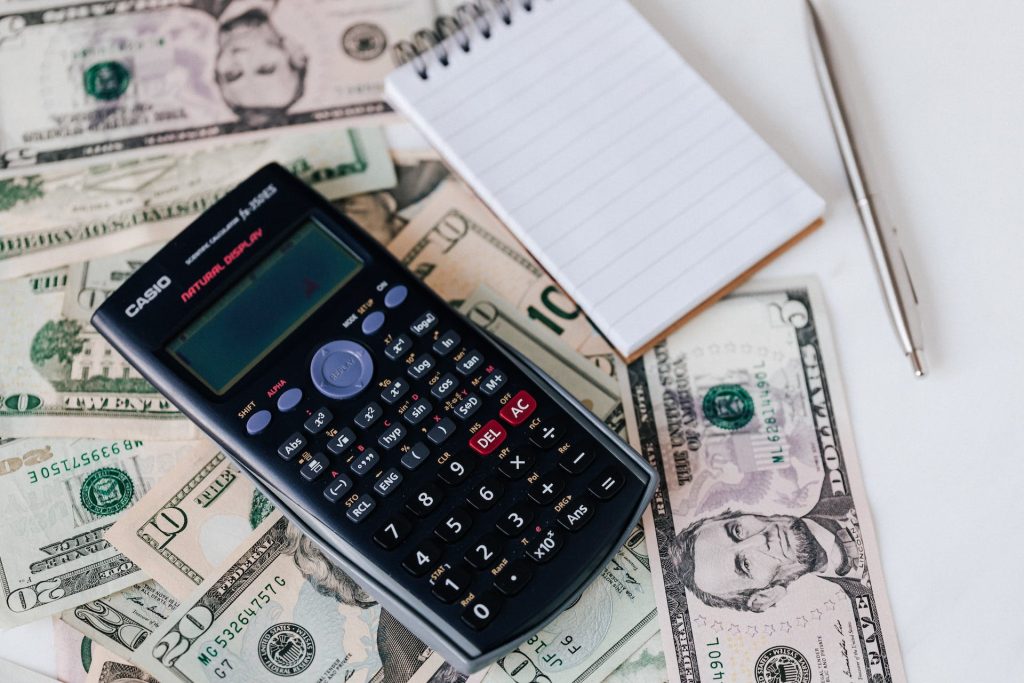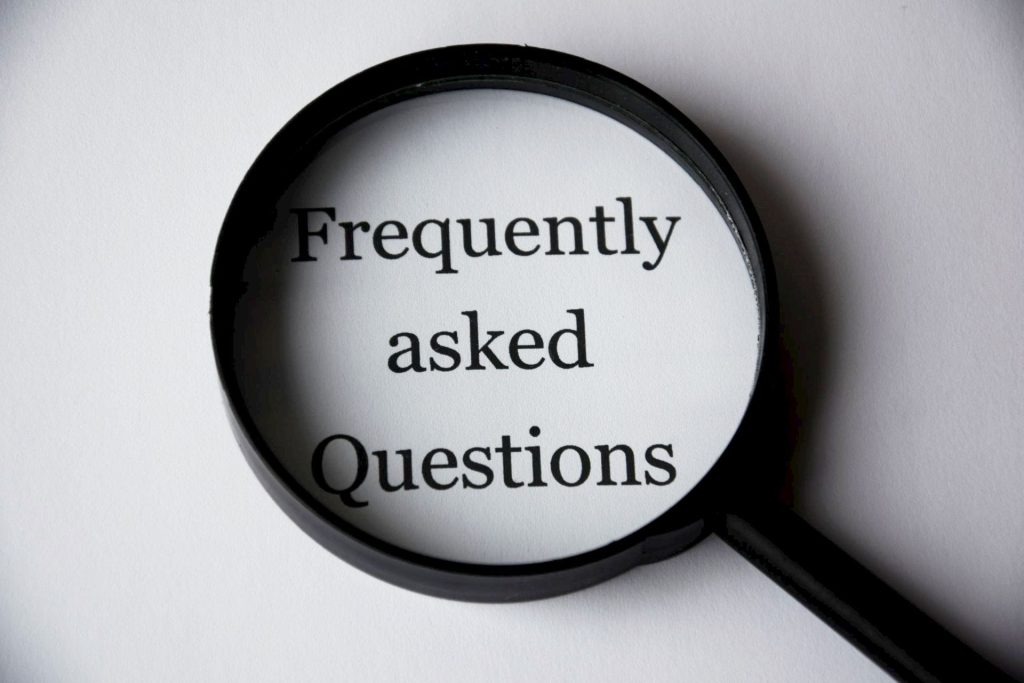Navigating your finances can feel tricky, especially when you’re trying to understand how credit agencies determine your credit score. Does overdraft affect credit score? It’s a relief to know that while an overdraft doesn’t directly affect your credit score, the consequences of not addressing it can.

Our article unravels this financial knot by guiding you through managing overdrafts and safeguarding your credit reputation. Ready? Let’s dive in and clear up the confusion.
Key Takeaways
- Overdrafts don’t show up on your credit report, but if you don’t pay overdraft fees, the debt can go to collections and damage your credit score.
- Using overdraft protection may help avoid fees, but it’s important to understand any costs involved.
- Checking your bank account regularly and setting up alerts can prevent overdrafts and protect your credit rating.
Understanding Overdrafts
In the journey to demystify the intricacies of our financial lives, let’s delve into understanding overdrafts, those pesky occurrences that happen when transactions exceed the balance in your checking account.
This can often occur due to miscalculations or unexpected expenses, and it’s crucial to comprehend both what triggers an overdraft and how it can potentially ripple through your monetary stability.
What is an Overdraft?
An overdraft happens when you spend more money than you have in your checking account. Imagine buying something with your debit card but your account doesn’t have enough cash. The bank might let the payment go through anyway, and now your account is overdrawn.
This means you owe the bank money for the amount you went over.
Banks often charge a fee if they cover these payments, which can be around $35 each time it happens. If many things get paid even though there’s not enough money, that could mean lots of fees! Some people set up overdraft protection to avoid this problem.
This links another account or credit card to help pay if there’s not enough cash in checking accounts. But doing this might lead to other charges like cash advance fees or higher interest rates on the linked credit card.

Common Causes of Overdrafts
Overdrafts happen when you spend more money than what is in your bank account. This can lead to fees and financial trouble if it happens a lot. Now let’s talk about why overdrafts occur so often.
- Not keeping track of spending: When you buy things without checking your account balance, you might spend more than what’s there.
- Surprise payments: Sometimes bills get pulled from your account automatically, and if you forget or didn’t plan for them, your balance could drop too low.
- Making big purchases: If you buy something expensive without enough money in your account, this can cause an overdraft.
- Deposits not clearing: You might think you have more money available if a check or transfer hasn’t cleared yet. Spending before it does can cause problems.
- Bank holds: Sometimes the bank will hold funds to make sure a transaction is okay. If you spend during this time, it could create an overdraft.
- Emergency expenses: Urgent costs like car repairs can lead to spending without enough funds in your account.
- ATM withdrawals: Taking out cash when there isn’t enough money in the account can cause an instant overdraft.
- Bank errors: Rarely, banks may make mistakes with transactions which could accidentally put your account in the negative.
Overdrafts and Your Credit Report
While overdrafts themselves don’t typically appear on your credit report, failing to resolve outstanding fees can lead to actions by financial institutions that do affect your credit standing.
Understanding the connection between bank behavior and potential reporting to ChexSystems, a consumer reporting agency focused on banking history, is essential for maintaining a healthy credit score.
Do Overdrafts Appear on Credit Reports?
Overdrafts from your bank account usually stay off your credit report. This includes times when you spend more money than what’s in your account. Your credit cards and loans show up on your report, but not overdrafts from checking or savings accounts.
But there is a catch. If you do not pay the bank for the overdraft fees, they might send the debt to a collection agency. Once that happens, it can appear on your credit report as a negative mark.
That bad mark could stick around for seven years which hurts how others see your credit history. It’s important to handle overdraft fees fast before they get worse and affect your credit score.

The Role of ChexSystems in Banking History
ChexSystems plays a big part in the world of banks. It keeps track of what happens in our bank accounts, like when we spend more than we have, write checks that bounce, or leave an account with a negative balance.
Banks look at this information to see if someone has had problems with their accounts before. If there are lots of issues, it might be hard for them to open a new bank account.
Although ChexSystems can stop someone from getting a new bank account, it does not change their credit score. This means even if you have trouble with ChexSystems, you can still borrow money or get credit cards.
It’s important to know that while ChexSystems won’t talk to the credit bureaus about your overdrafts, not taking care of those fees can lead to bigger troubles that could hurt your credit down the road.
Does Overdraft Affect Credit Score?
When a check bounces or an account dips below zero, banks may cover the shortfall, but if overdraft fees remain unpaid, it can escalate to collections, significantly harming your credit score as lenders report this delinquency.
This negative mark on your credit report may linger and affect future borrowing opportunities by signaling risk to potential lenders. Therefore, managing overdrafts carefully is crucial in maintaining a healthy FICO score and ensuring access to essential lines of credit when needed.
Bounced Checks and Overdraft Protection
Bounced checks happen when you write a check, but there’s not enough money in your account to cover it. This can lead to trouble if not fixed quickly. Overdraft protection helps stop checks from bouncing by letting the bank cover the shortfall for a fee.
You need to pay back this extra money, or else it might harm your credit score.
If you forget to repay what the bank covered for you, they could send the bill to collections agencies. This move puts a mark on your credit report that lasts seven years. Keep an eye on your account and make sure you have overdraft protection if needed, but always try to avoid using it too much because of possible fees and risks.

The Impact of Unpaid Overdraft Fees
Unpaid overdraft fees can turn into a big problem. If you don’t pay these fees, the bank might send your account to a collections agency. Once it goes to collections, it will show up on your credit report and could stay there for seven years as a delinquency.
This is serious because what’s on your credit report can affect your chances of getting loans or good rates in the future.
It’s very important to handle overdrafts quickly before they get worse. Banks tell you if you have an overdraft, so paying off the fees fast can stop them from hurting your credit score.
After dealing with unpaid fees, learning how to avoid overdrafts in the first place is key. Now let’s look at what happens when things go too far and end up in collections – that could really damage your credit history.
Worst Case Scenarios: Collections and Credit Damage
If you can’t pay your overdraft fees, banks might send the debt to a collection agency. This is one of the worst things that can happen for your credit score. Once in collections, an overdraft debt shows up as a bad mark on your credit report.
This negative information can hurt how companies see you when you want to borrow money or get a new place to live.
Debts in collections stay on your credit report for seven years and are seen as warning signs by lenders and others who check your credit. Credit card companies, student loans providers, and mortgage lenders may think twice before giving you money or approving applications.
Always try to avoid letting overdrafts reach this point because it could make managing personal finances much harder in the future.
Managing Overdrafts to Protect Your Credit
To safeguard your credit from the pitfalls of overdrafts, it’s essential to employ strategies that minimize the risk of incurring such fees. This can involve setting up alerts for low account balances, closely tracking your spending habits, and maintaining a cushion in your checking account to absorb unexpected expenses.
Moreover, exploring overdraft protection services offered by your financial institution could provide a safety net while managing finances efficiently. These steps are proactive measures to ensure overdrafts do not become a recurring issue with the potential to tarnish your credit history.

Tips to Avoid Overdraft Fees
Nobody likes paying extra fees. Avoiding overdraft fees will keep more money in your pocket and help you manage your bank account better.
- Keep a cushion in your checking account. Always try to have a little more money than you think you’ll need. This can help prevent overspending.
- Set up alerts with your bank. Get a message on your phone or email when your balance drops below a certain amount.
- Watch what you spend. Use a budget app or check your bank statements often to know where your money goes.
- Link your savings account to checking. If you spend too much, the money can come from savings and reduce overdraft fees.
- Review the terms of overdraft protection. It’s an option banks offer but make sure you understand how it works and any costs involved.
- Be careful with debit card holds. Some places like hotels or gas stations block off money in your account that can lead to overdrafts if not tracked.
- Opt out of overdraft services. You won’t be able to spend more than what’s in your account, which avoids overdraft fees altogether.
Monitoring Your Bank Accounts and Credit
Keeping an eye on your bank accounts and credit is a smart way to watch out for overdrafts. It helps you catch mistakes before they turn into bigger problems.
- Check your bank account often: Look at your balance every few days. This lets you see how much money you have so you don’t spend more than what’s there.
- Set up alerts: Many banks let you get messages when your balance gets low or if there’s unusual activity. This way, you can add money or stop spending before an overdraft happens.
- Review your transactions: Make sure all the payments and deposits that show up are ones you know about. If something looks wrong, contact your bank right away.
- Create a budget: Know where your money goes each month. A budget helps make sure you have enough for important things and lessens the chance for overspending.
- Keep track of pending transactions: Sometimes it takes a while for payments to come out of your account. Remember these so you don’t think you have more money than you actually do.
- Use mobile banking apps: These apps make checking your account easy from anywhere. You can quickly see what’s happening with your money.
- Watch your credit card use: If you use a credit card for overdraft protection, pay attention to that bill too. Always pay it on time to keep a healthy credit score.
- Regularly get credit reports: You’re allowed one free report from each credit bureau every year at annualcreditreport.com. Use this to check for any errors or signs of identity theft that could hurt your score.
- Balance your checkbook: If you write checks, record them and any other money moves in a book or an app designed for this purpose.

Overdraft Protection: Pros and Cons
When considering overdraft protection, it’s essential to weigh its benefits, like avoiding embarrassment at the checkout counter or protecting your credit from unintended consequences, against potential downsides such as high fees and unexpected costs.
This service could act as a safety net, preventing declined transactions due to insufficient funds or bounced checks that may lead to more significant financial headaches. Yet, transparency is crucial since this convenience can come with strings attached – think hidden charges and increased temptation to overspend due to perceived ‘additional’ funds.
Therefore, staying informed about your specific bank’s policies and terms can prevent these protective measures from inadvertently straining your finances.
Benefits of Opting for Overdraft Protection
Overdraft protection can be a safety net for your bank account. It helps you avoid the trouble of having transactions denied if you don’t have enough money.
- No awkward moments: If you use your card and there’s not enough cash in your account, overdraft protection keeps you from being embarrassed at the checkout counter.
- Saves on fees: Linking your savings to your checking can cut down on costs that come up when you overdraft.
- More choices: You get options like using a line of credit or even borrowing from the bank itself to make sure your payments go through.
- Less stress: You won’t have to worry about checks bouncing or payments missing because overdraft protection takes care of it for you.
- Easy fixes: When mistakes happen, like forgetting about a bill, this service can cover you so nothing gets disrupted.
- Keeps credit solid: Protecting against bounced checks helps keep your payment history positive, which is crucial for good credit scores.
Potential Downsides and Hidden Costs
Overdraft protection may seem like a safety net, but it’s important to know the full story. There are downsides and hidden costs that could surprise you.
- Fees add up quickly: Every time overdraft protection kicks in, you might have to pay fees. These can be up to $35 per transaction, which adds up if you’re not careful.
- Increased spending temptation: Knowing you have overdraft protection might make you less worried about spending. This can lead to more fees because you might go over your account balance more often.
- It can become a habit: If you use overdraft protection a lot, it may become a normal thing for you. This isn’t good because it means paying more fees and not managing your money well.
- Risk of debt accumulation: Those fees from using overdrafts turn into debts. If you don’t pay them back fast, they grow bigger and might hurt your credit score.
- Overdrafts could lead to collections: If you don’t clear your overdraft fees, banks might send the debt to collectors. Once in collections, it hurts your credit report for seven years.
- Impact on future accounts: A record of many overdrafts can show up in ChexSystems. This might stop you from opening new bank accounts later on.
- Loss of account privileges: Banks sometimes take away your chance to have an account with them if there are too many problems with overdrafts.
- Overdraft doesn’t always cover checks or automatic bills: Sometimes, even with protection, checks bounce or bills aren’t paid automatically. Then, creditors could charge extra for missed payments.
Conclusion
Taking care of your bank account is key. If you watch it closely and avoid overdrafts, your credit score stays safe. Remember, letting those fees pile up could lead to trouble with collections – and that hurts your score for a long time.
Keep an eye on your money habits, use tools like overdraft protection if they help you, but be careful about extra costs. Stay smart with your spending and banking to keep your credit in good shape!

Frequently Asked Questions
1. What is an overdraft and can it hurt my credit score?
An overdraft happens when you spend more money than you have in your bank account. Usually, it doesn’t affect your credit score if you pay it back quickly.
2. Does signing up for overdraft protection change my credit score?
Signing up for overdraft protections like a courtesy pay might involve a credit check, but it won’t directly change your score unless the bank does a hard inquiry.
3. If I don’t pay my overdraft, what happens to my credit score?
If you don’t pay back your overdraft and the bank uses a debt collector or reports the amount as lost money (charge-offs), this could harm your credit score.
4. Are there any laws that say how banks report our banking activity?
Yes, there’s something called the Fair Credit Reporting Act that tells banks and other businesses how they must handle privacy and reporting of customer data which includes details like an unpaid overdraft.
5. Do different kinds of loans affect whether an overdraft will impact my credit score?
No matter what kind of loan – personal loans, business loans, mortgages – an unpaid overdraft can still negatively impact your ability to borrow because lenders look at overall responsible financial behavior.
6. Will using digital banking help me keep better track of my accounts to avoid going into overdraft?
Digital banking on platforms such as Internet Explorer could make managing accounts easier so that due diligence is more straightforward; hence avoiding accidental overspending.
###
Q: How does an overdraft affect my credit score?
A: Overdrafts on a checking account do not typically appear on your credit report and therefore do not directly impact your credit score. However, if you fail to cover the overdraft and the account is sent to collections, it could negatively impact your credit score.
Q: Can improving my credit help minimize the impact of an overdraft on my credit score?
A: Improving your credit, such as maintaining a good payment history, a low credit utilization ratio, and a diverse credit mix, can potentially minimize the negative impact of an overdraft on your credit score.
Q: Will opening a new bank account after an overdraft affect my credit score?
A: Opening a new bank account generally does not have a direct impact on your credit score as it does not appear on your credit report. However, if the new account leads to excessive credit inquiries or affects your credit utilization, it could indirectly impact your credit score.
Q: How do overdrafts and credit utilization relate to my credit score?
A: Overdrafts themselves do not directly impact your credit utilization, which is the ratio of your credit card balances to your credit limits. However, if an overdraft leads to increased credit card usage to cover the deficit, it could indirectly impact your credit utilization and subsequently your credit score.
Q: Do overdrafts affect all three major credit bureaus (Experian, TransUnion, and Equifax)?
A: Overdrafts and checking account activity may not appear on your credit report with all three major credit bureaus. However, if the account is sent to collections or has a negative impact, it can potentially reflect in your credit file across the bureaus.
Q: Can an overdraft be sent to collections and thus impact my credit score?
A: Yes, if an overdraft on a checking account is not resolved and the account is sent to collections, it can have a negative impact on your credit score. It is crucial to monitor your account and take the necessary steps to address any overdrafts before they escalate to collections.
Q: How does an overdraft negatively affect my credit score?
A: An overdraft can negatively affect your credit score if it leads to the account being sent to collections, creating a negative impact on your credit file. Additionally, if it leads to increased credit card usage or missed payments on other accounts to cover the overdraft, it can further impact your credit score.
Q: Does improving my credit score raise the likelihood of overdrafts in the future?
A: Improving your credit score does not directly impact the likelihood of overdrafts in the future. However, it can provide you with better financial management practices and access to credit that may help prevent overdrafts and better handle financial situations.
Q: Can overdrafts affect my credit score positively?
A: Generally, overdrafts do not have a direct positive impact on your credit score. However, effectively managing and resolving any overdrafts, maintaining good credit practices, and improving your overall financial stability can indirectly contribute to a positive impact on your credit score.
Q: Does an overdraft affect my credit score if it is rectified promptly?
A: If an overdraft is rectified promptly and does not escalate to collections or have a prolonged negative impact, it may not significantly affect your credit score. However, it’s essential to monitor your credit report and address any potential issues stemming from the overdraft.

